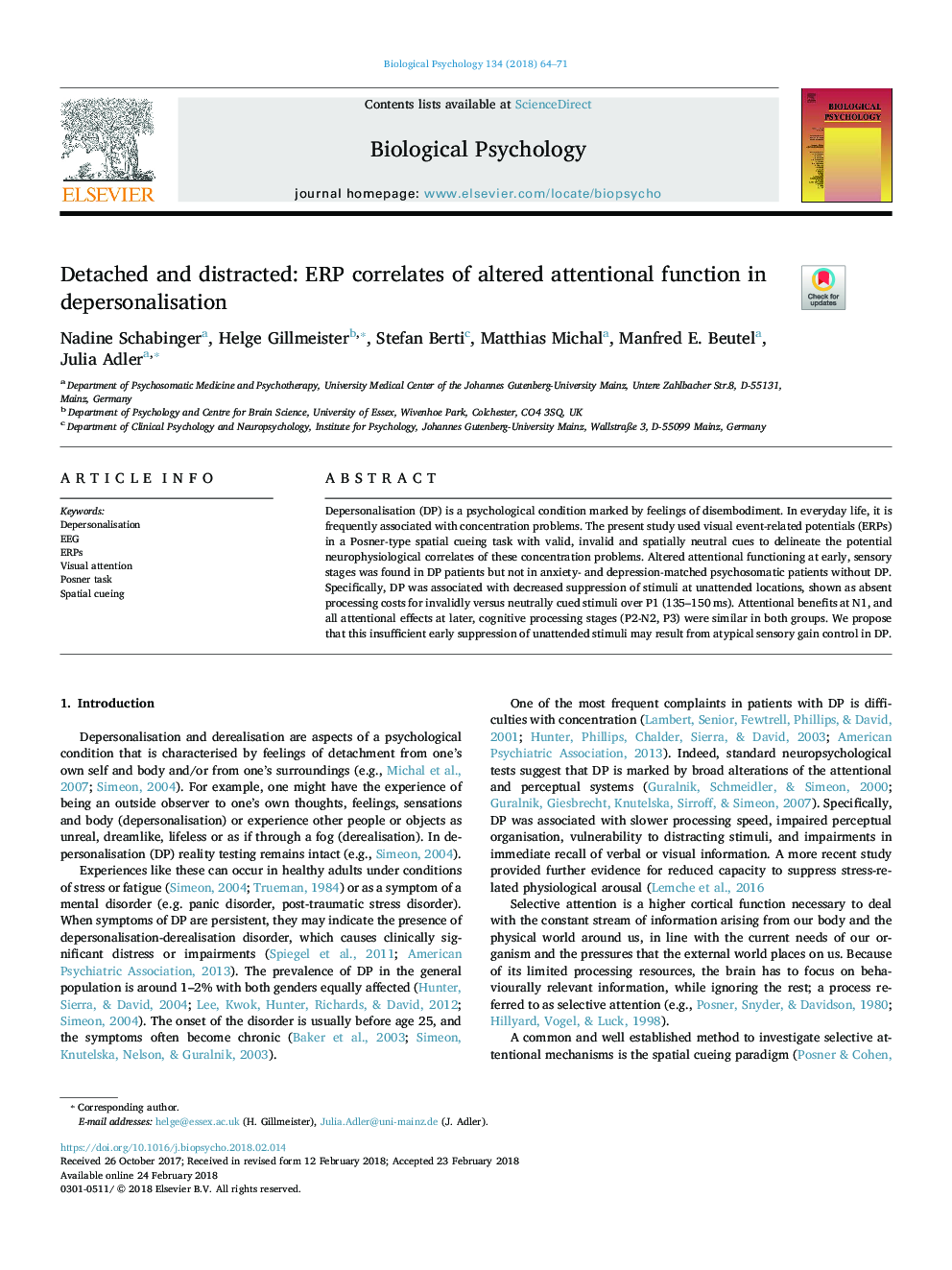| Article ID | Journal | Published Year | Pages | File Type |
|---|---|---|---|---|
| 7278161 | Biological Psychology | 2018 | 8 Pages |
Abstract
Depersonalisation (DP) is a psychological condition marked by feelings of disembodiment. In everyday life, it is frequently associated with concentration problems. The present study used visual event-related potentials (ERPs) in a Posner-type spatial cueing task with valid, invalid and spatially neutral cues to delineate the potential neurophysiological correlates of these concentration problems. Altered attentional functioning at early, sensory stages was found in DP patients but not in anxiety- and depression-matched psychosomatic patients without DP. Specifically, DP was associated with decreased suppression of stimuli at unattended locations, shown as absent processing costs for invalidly versus neutrally cued stimuli over P1 (135-150â¯ms). Attentional benefits at N1, and all attentional effects at later, cognitive processing stages (P2-N2, P3) were similar in both groups. We propose that this insufficient early suppression of unattended stimuli may result from atypical sensory gain control in DP.
Related Topics
Life Sciences
Neuroscience
Behavioral Neuroscience
Authors
Nadine Schabinger, Helge Gillmeister, Stefan Berti, Matthias Michal, Manfred E. Beutel, Julia Adler,
